January 21, 2024
Senator Group opens new showroom in Dubai
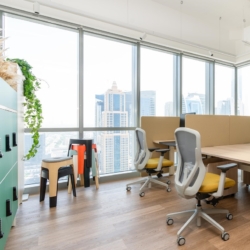 Dubai has long been the destination of choice to showcase the most iconic of British Designs, and now it is the home to The Senator Group’s newest showroom. The 3700 square foot space is nestled in Dubai’s Marina Plaza, a 28-story tower with panoramic views of the marina, city, and desert. Visitors to the showroom will fully experience, ‘The Social Office’, which blends the Senator and Allermuir brands to create a fluid and flexible contemporary working space. The concept was developed to address the challenges of every organisation, how can we align people and space efficiently, to nurture productivity and culture? How can we create human-centred environments with the right mix of focus, privacy, and collaboration? (more…)
Dubai has long been the destination of choice to showcase the most iconic of British Designs, and now it is the home to The Senator Group’s newest showroom. The 3700 square foot space is nestled in Dubai’s Marina Plaza, a 28-story tower with panoramic views of the marina, city, and desert. Visitors to the showroom will fully experience, ‘The Social Office’, which blends the Senator and Allermuir brands to create a fluid and flexible contemporary working space. The concept was developed to address the challenges of every organisation, how can we align people and space efficiently, to nurture productivity and culture? How can we create human-centred environments with the right mix of focus, privacy, and collaboration? (more…)







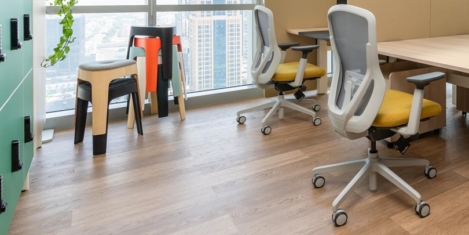
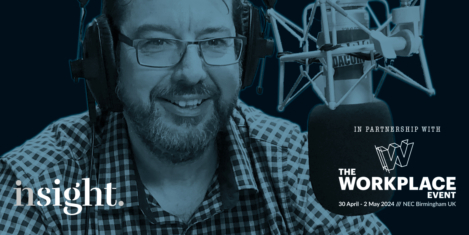
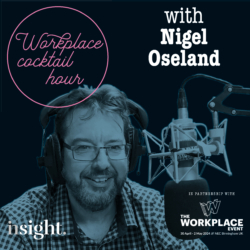





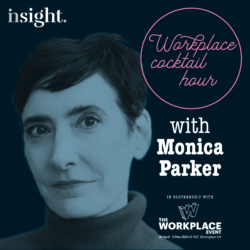 Monica Parker joins Mark Eltringham to share an Old Fashioned while discussing how to find wonder in the everyday, the limits of workplace design, our renewed obsession with productivity, how to achieve flow states in a world of distractions and what it means to be truly happy. There’s not much workplace news around right now as people are still finding their feet after Christmas, so we also explore some lessons we might take from the Post Office scandal about how organisations go wrong and the role of human nature in creating toxic cultures.
Monica Parker joins Mark Eltringham to share an Old Fashioned while discussing how to find wonder in the everyday, the limits of workplace design, our renewed obsession with productivity, how to achieve flow states in a world of distractions and what it means to be truly happy. There’s not much workplace news around right now as people are still finding their feet after Christmas, so we also explore some lessons we might take from the Post Office scandal about how organisations go wrong and the role of human nature in creating toxic cultures. 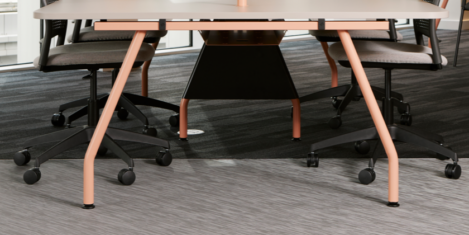
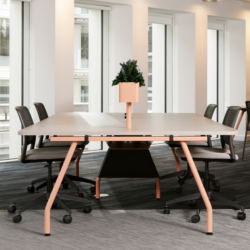 Named for its distinctive kinked leg bracket, KI’s new product, ‘KI-nk’, is the perfect addition to your office space. It’s available as part of a table system or as a bench and desk collection. The KI-nk Table System is available in a range of sizes and 3 different shapes – circular, square, and rectangular – so it’s easier to choose the right style for the area you want to fit out, whether that’s a meeting room, a breakout space, executive office, reception, or a café area. Worktops can be specified with either a square or chamfered edge.
Named for its distinctive kinked leg bracket, KI’s new product, ‘KI-nk’, is the perfect addition to your office space. It’s available as part of a table system or as a bench and desk collection. The KI-nk Table System is available in a range of sizes and 3 different shapes – circular, square, and rectangular – so it’s easier to choose the right style for the area you want to fit out, whether that’s a meeting room, a breakout space, executive office, reception, or a café area. Worktops can be specified with either a square or chamfered edge. 

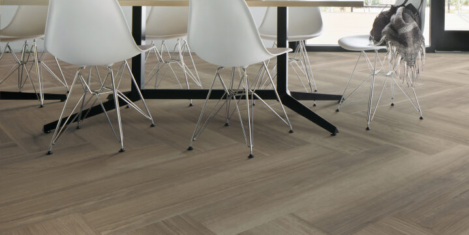
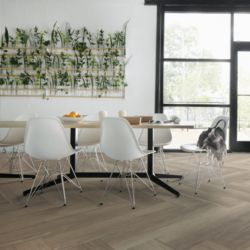

 Proper management of employee health and wellness is an important facet to consider when striving for success in the workplace. Properly supporting employee health helps them perform better, encourages productivity, prevents losses from absences, enhances job satisfaction, and improves overall morale. Employers can promote employee wellness in different ways, but one area you should consider prioritising is eye care in the workplace.
Proper management of employee health and wellness is an important facet to consider when striving for success in the workplace. Properly supporting employee health helps them perform better, encourages productivity, prevents losses from absences, enhances job satisfaction, and improves overall morale. Employers can promote employee wellness in different ways, but one area you should consider prioritising is eye care in the workplace. 












January 16, 2024
Technology is stealing your time in ways you may not realise
by Ruth Ogden, Joanna Witowska and Vanda Cernohorská • Comment, Technology, Wellbeing